Benchmark
Benchmark Environments#
n1-highcpu-8 (8 vCPUs, 7.2 GB memory) on Google Cloud
But we only used 4 cores to run APISIX, and left 4 cores for system and wrk, which is the HTTP benchmarking tool.
Benchmark Test for reverse proxy#
Only used APISIX as the reverse proxy server, with no logging, limit rate, or other plugins enabled, and the response size was 1KB.
QPS#
The x-axis means the size of CPU core, and the y-axis is QPS.
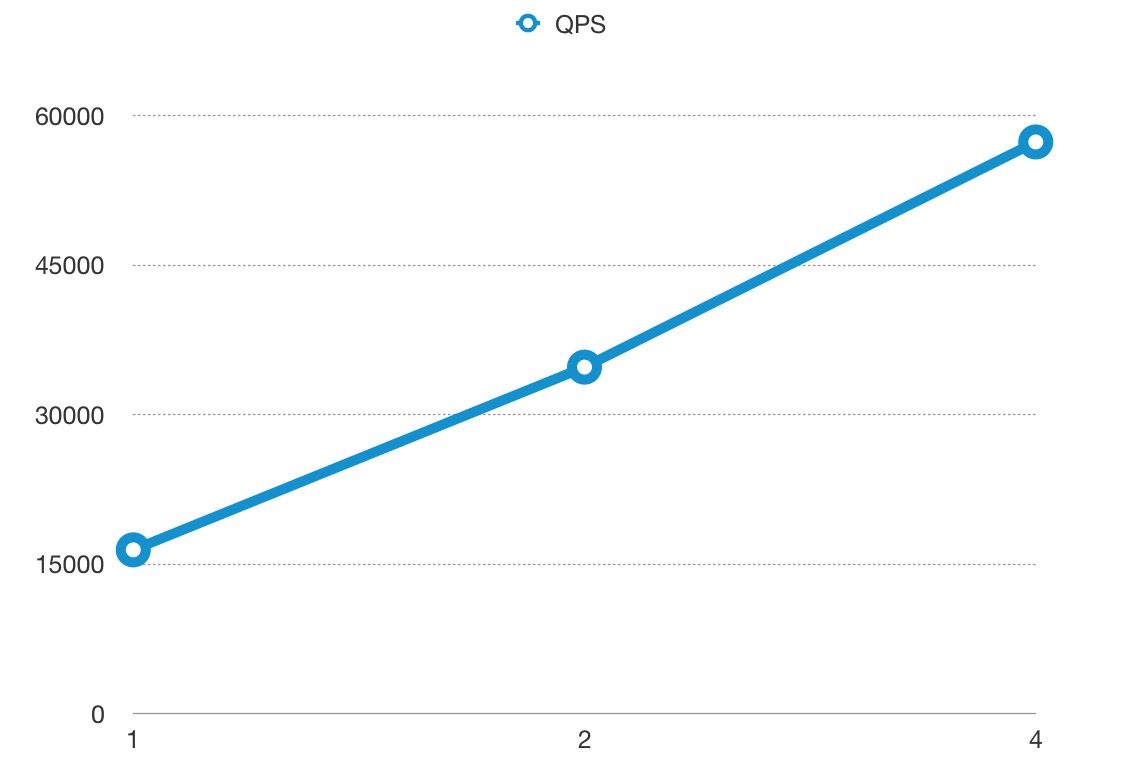
Latency#
Note the y-axis latency in microsecond(μs) not millisecond.
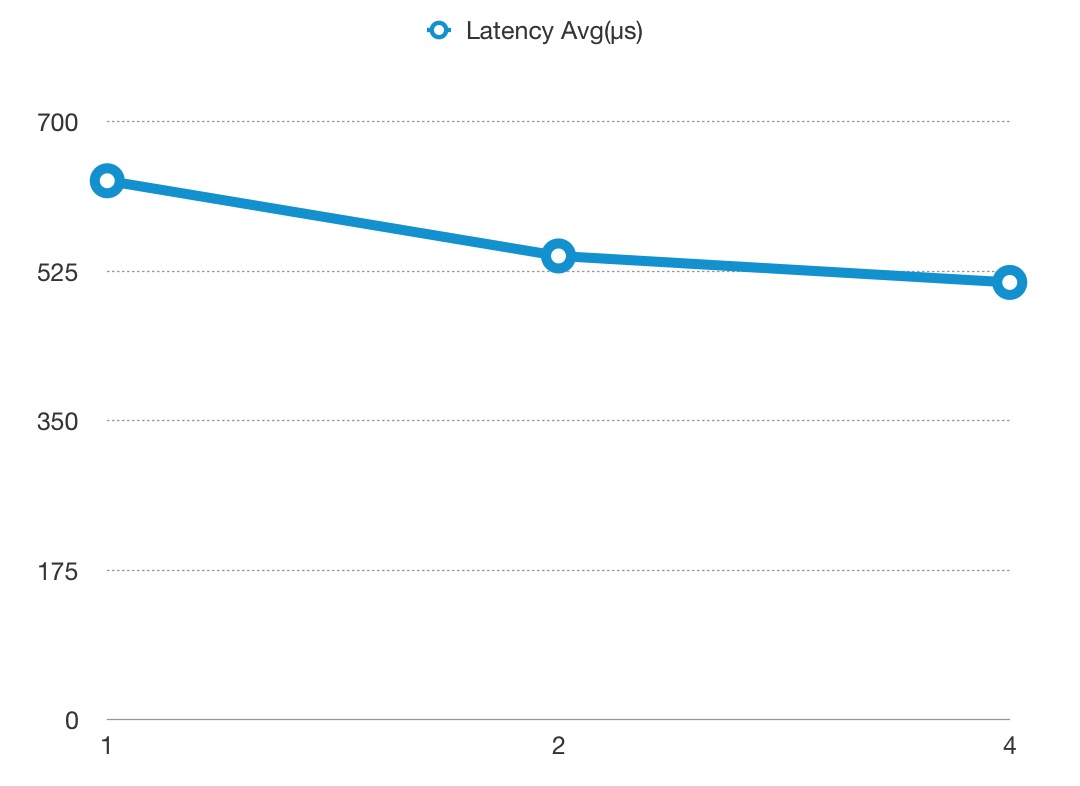
Flame Graph#
The result of Flame Graph:
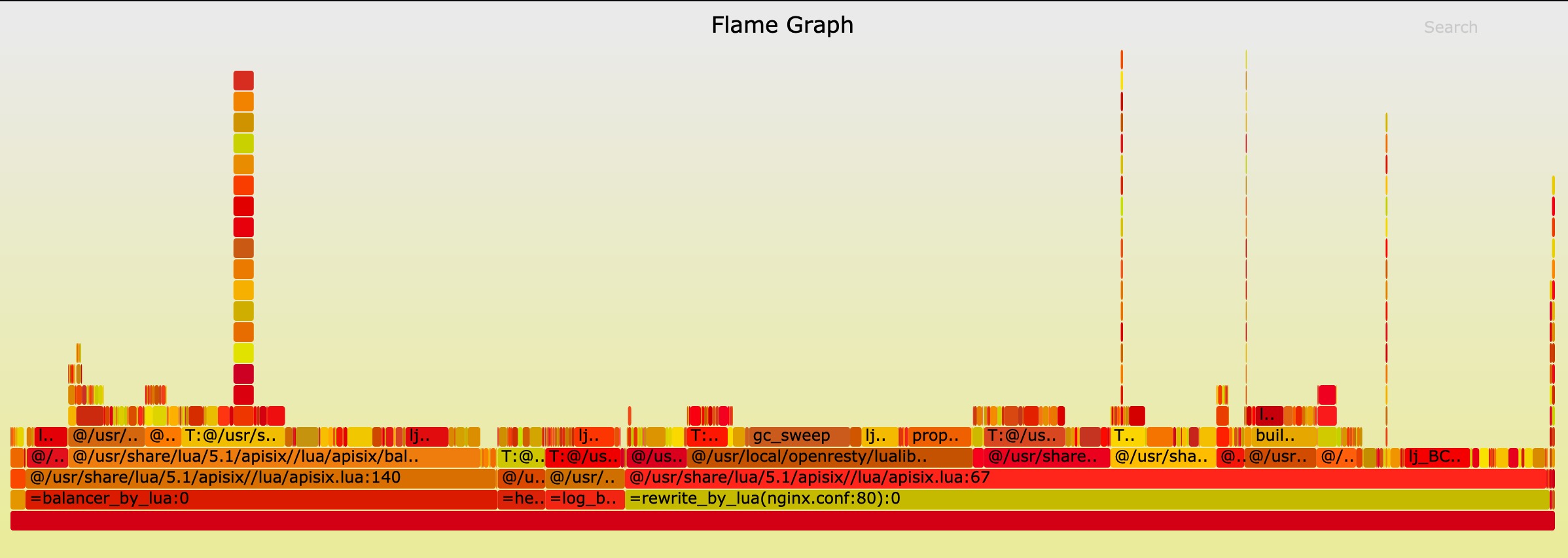
And if you want to run the benchmark test in your machine, you should run another Nginx to listen 80 port.
curl http://127.0.0.1:9080/apisix/admin/routes/1 -H 'X-API-KEY: edd1c9f034335f136f87ad84b625c8f1' -X PUT -d '{ "methods": ["GET"], "uri": "/hello", "upstream": { "type": "roundrobin", "nodes": { "127.0.0.1:80": 1, "127.0.0.2:80": 1 } }}'then run wrk:
wrk -d 60 --latency http://127.0.0.1:9080/helloBenchmark Test for reverse proxy, enabled 2 plugins#
Only used APISIX as the reverse proxy server, enabled the limit rate and prometheus plugins, and the response size was 1KB.
QPS#
The x-axis means the size of CPU core, and the y-axis is QPS.
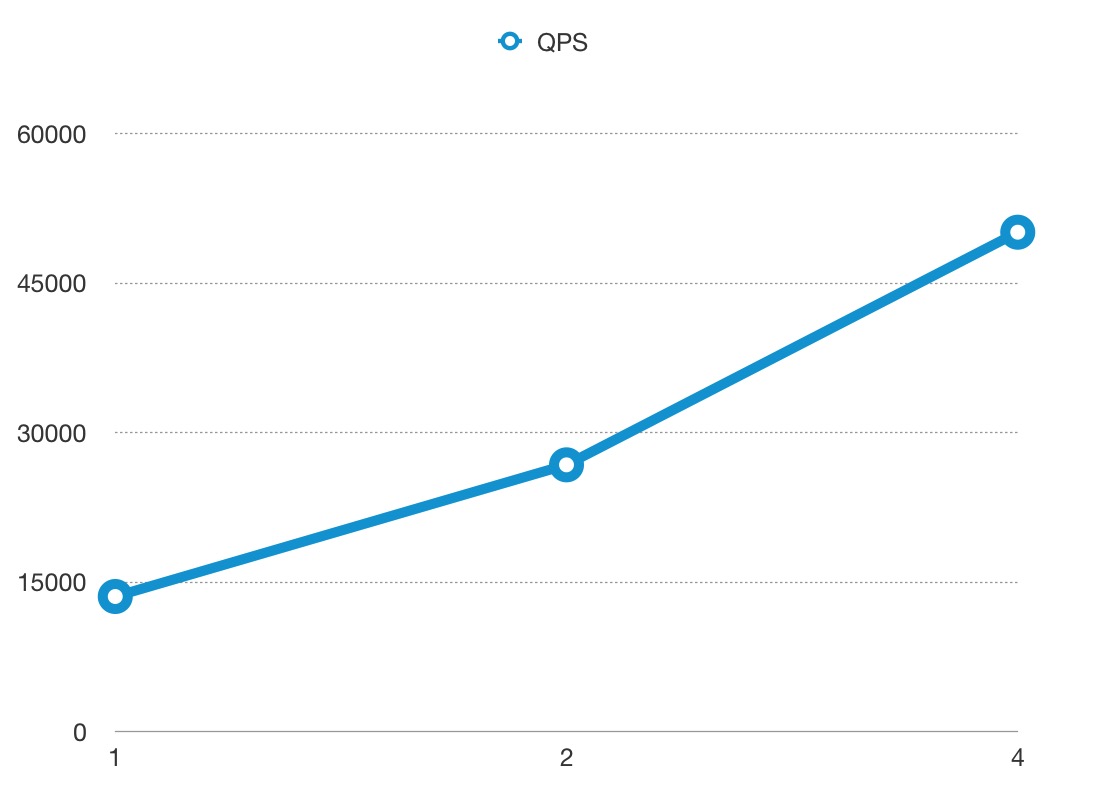
Latency#
Note the y-axis latency in microsecond(μs) not millisecond.
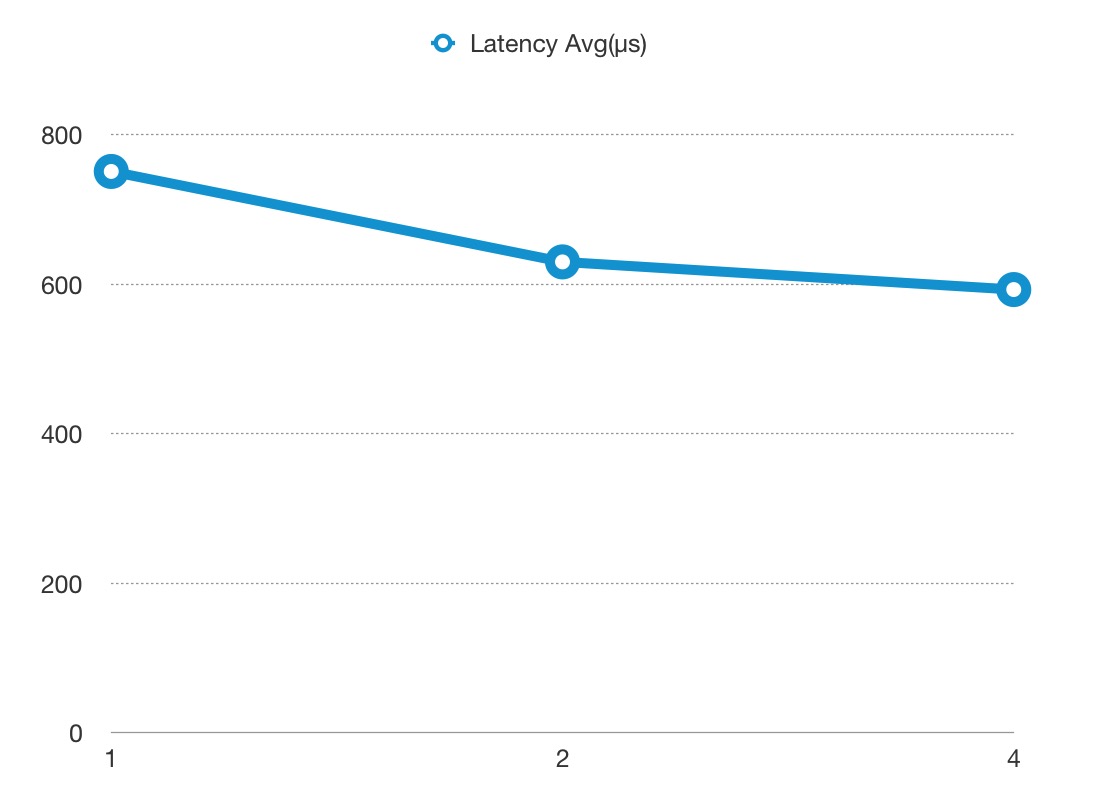
Flame Graph#
The result of Flame Graph:
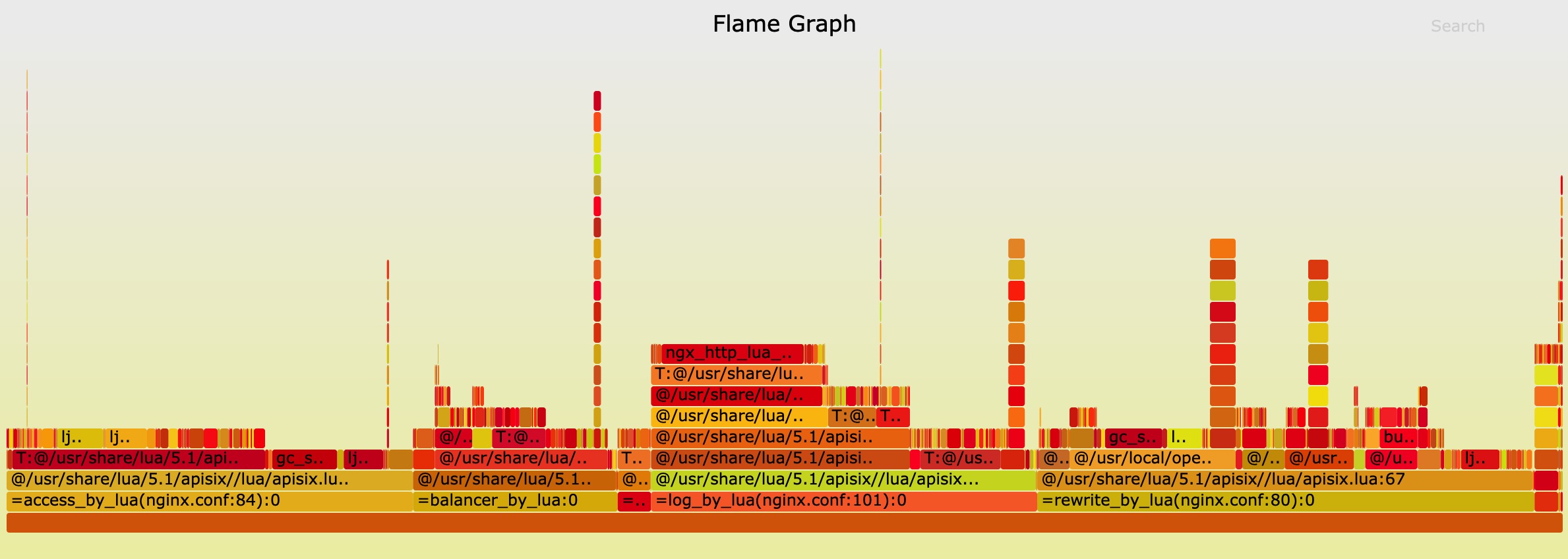
And if you want to run the benchmark test in your machine, you should run another Nginx to listen 80 port.
curl http://127.0.0.1:9080/apisix/admin/routes/1 -H 'X-API-KEY: edd1c9f034335f136f87ad84b625c8f1' -X PUT -d '{ "methods": ["GET"], "uri": "/hello", "plugins": { "limit-count": { "count": 999999999, "time_window": 60, "rejected_code": 503, "key": "remote_addr" }, "prometheus":{} }, "upstream": { "type": "roundrobin", "nodes": { "127.0.0.1:80": 1, "127.0.0.2:80": 1 } }}'then run wrk:
wrk -d 60 --latency http://127.0.0.1:9080/hello